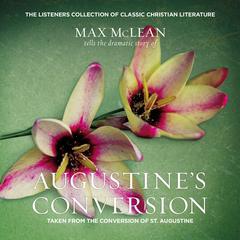 Play Audiobook Sample
Play Audiobook Sample
The City of God Audiobook
 Play Audiobook Sample
Play Audiobook Sample
Quick Stats About this Audiobook
Total Audiobook Chapters:
Longest Chapter Length:
Shortest Chapter Length:
Average Chapter Length:
Audiobooks by this Author:
Publisher Description
Written between AD 413 and 426, The City of God is one of the great cornerstones in the history of Christian thought, a book vital to understanding modern Western society. Augustine originally intended it to be an apology for Christianity against the accusation that the Church was responsible for the decline of the Roman Empire. Indeed, Augustine produced a great amount of evidence to prove that paganism was responsible for this event. However, by the time the work was finished, the book had taken on a larger theme: a cosmic interpretation of history in terms of the conflict between good (the City of God) and evil (the Earthly City). Augustine foresees that, through the will of God, the people of the City of God will eventually win immortality, while those of the Earthly City will suffer destruction.
Download and start listening now!
“[Augustine’s] arguments against utopianism and his defense of the richness of Christian culture remain useful and strong. City of God is, as its final words proclaim itself to be, ‘a giant of a book.’”
— Amazon.com, editorial review
Quotes
-
“The human mind can understand truth only by thinking, as is clear from Augustine.”
— Saint Thomas Aquinas -
“The City of God is a monumental theology of history…his analysis is timeless and universal.”
— Thomas Merton, Trappist monk, author -
“A Masterpiece of Western culture.”
— Merriam Webster Encyclopedia of Literature
The City of God Listener Reviews
- — Worknprogress06, 12/13/2022
About Aurelius Augustinus
Saint Augustine (354–430), a philosopher and theologian, was born in the city of Tagaste, the present day Souk Ahras, Algeria. A Latin Father and Doctor of the Church, he is one of the most important figures in the development of Western Christianity. His works, including The Confessions, are still read around the world.
About Bernard Mayes
Bernard Mayes is a teacher, administrator, corporate executive, broadcaster, actor, dramatist, and former international commentator on US culture. He is best known for his readings of historical classics.






























